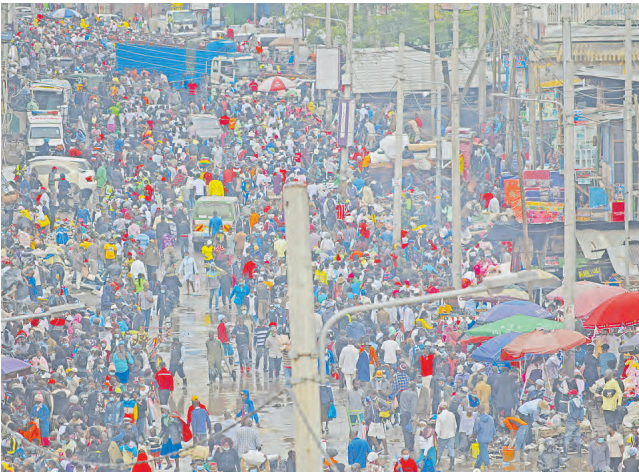

More Kenyans have fallen into financial crisis in the last four years, according to a new FinAccess survey released on Tuesday.
The survey reveals that 81.7 per cent of Kenyans are financially unhealthy, facing challenges in managing daily expenses and investing for the future.
It found that Kenyans opted to cutting down on other expenses, run down savings, look for additional work or business, and take another loan to repay all in a bid to pay back debts.
Worse still, the report discovered that the most popular action to repay debt is by reducing expenses on food with females surpassing males by recording 63.0 per cent and 57.1 per cent respectively.
“The least sought action to pay is by selling or giving assets and belongings, which saw females record 20.7 per cent and males 23.1 per cent,” read part of the report.
According to the report, men are more willing to part with their assets and belongings as compared to females.
In overall, it noted a troubling decline in financial health, with only 18.3 per cent of Kenyans considered financially healthy in 2024, down from 39.4 per cent in 2016. This represents a 21.1 per cent increase in the number of Kenyans who are financially unhealthy compared to the last few years.
The report shows that most Kenyans have resorted to borrowing to survive and as debt repayment catch up with them; they are reducing food expenditures to pay back loans.
This has led to an overall food vulnerability increasing, with at least 12 per cent of the country’s population sleeping on empty stomachs.
The worsening financial position has seen loan defaults jump by six per cent between 2021 and 2024.
The report shows that the number of Kenyans who didn’t pay back their loans at all now stands at 16 per cent marking the highest level in nearly two decades.
This new rate is the highest since 2005 when the debt default hit 30 per cent.
The defaulting then was largely driven by widespread economic instability and structural inefficiencies in credit management.
Last year, the rate reached 15 per cent due to factors such as high interest rates, inflation, and delayed government payments to contractors.
In October, CBK lowered the base-lending rate. However, bank-lending rates did not follow suit. In terms of inflation, the country is enjoying the lowest inflation rate in 14 years, going below 3 per cent. It stands at 2.8 per cent in October.
The number of those who paid late, missed a payment, or paid less than they borrowed dropped to 37.2 per cent from 45.8 per cent in 2021.
According to the survey, the number of borrowers who paid on time or did not miss a payment increased slightly to 45.9 per cent up from 42 per cent.
Furthermore, the report has revealed that nine per cent of Kenyan adults are financially excluded,
with rural youth making up nearly
half. Lack of phones and ID cards
cited as key barriers.











